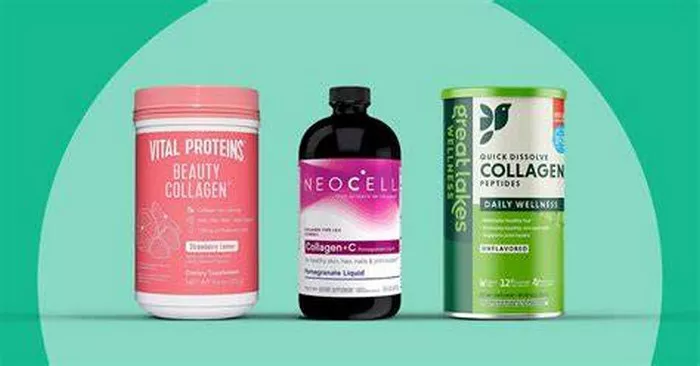Breastfeeding is a crucial period for both mother and child, providing the newborn with essential nutrients and antibodies that help bolster their immune system and promote healthy growth. For mothers, the postpartum phase can be physically and emotionally demanding. Ensuring optimal health during this time is essential for the well-being of both the mother and her baby. One supplement that has gained popularity among breastfeeding mothers is collagen. This article explores the numerous benefits of collagen supplementation during breastfeeding and how it can support both maternal and infant health.
Understanding Collagen
Collagen is the most abundant protein in the human body, accounting for about one-third of its total protein content. It is a key structural component found in the skin, bones, muscles, tendons, and ligaments. Collagen provides strength and elasticity to tissues and plays a vital role in wound healing and tissue repair.
Collagen and Postpartum Recovery
1. Enhances Skin Elasticity and Reduces Stretch Marks
Pregnancy can significantly impact a woman’s skin due to rapid stretching and weight gain. Stretch marks are a common concern among new mothers. Collagen supplementation has been shown to improve skin elasticity and hydration, which can help reduce the appearance of stretch marks. By supporting skin structure and promoting the regeneration of skin cells, collagen can aid in the postpartum healing process.
2. Supports Joint and Bone Health
The physical demands of caring for a newborn can take a toll on a mother’s joints and bones. Collagen is a crucial component of cartilage, which cushions joints and helps prevent wear and tear. Supplementing with collagen can support joint health and reduce the risk of joint pain and stiffness. Additionally, collagen contributes to bone strength, which is particularly important for mothers who may have experienced bone density loss during pregnancy.
3. Promotes Hair and Nail Growth
Postpartum hair loss is a common issue many women face after giving birth. Hormonal changes can lead to thinning hair and brittle nails. Collagen contains amino acids like proline and glycine, which are essential for the production of keratin, the protein that makes up hair and nails. Supplementing with collagen can help strengthen hair and nails, promoting healthier growth and reducing hair loss.
Collagen and Breastfeeding
1. Enhances Milk Production
Adequate protein intake is essential for milk production. Collagen, being a high-quality protein source, can contribute to the protein needs of breastfeeding mothers. While more research is needed to establish a direct link between collagen supplementation and increased milk production, ensuring sufficient protein intake is crucial for maintaining a healthy milk supply.
2. Supports Overall Maternal Health
Breastfeeding mothers require extra nutrients to support their own health and their baby’s growth. Collagen contains a unique profile of amino acids, including glycine, proline, and hydroxyproline, which are not only beneficial for skin, hair, and joint health but also for overall bodily functions. Glycine, in particular, is important for neurotransmitter function and the central nervous system, helping to promote restful sleep and reduce fatigue.
3. Aids in Postpartum Weight Management
Many new mothers are concerned about losing the weight gained during pregnancy. Collagen can support weight management by promoting satiety and reducing appetite. Protein-rich foods and supplements like collagen can help stabilize blood sugar levels and reduce cravings, making it easier for mothers to maintain a healthy diet and achieve their postpartum weight loss goals.
See Also: Benefits of Taking Prenatal Vitamins While Breastfeeding
Safety and Considerations
1. Safe for Most Mothers and Babies
Collagen is generally considered safe for most breastfeeding mothers. However, it is always important to consult with a healthcare provider before starting any new supplement, especially during breastfeeding. Some mothers may have allergies or sensitivities to collagen supplements, so it is essential to monitor for any adverse reactions.
2. Sourcing and Quality
When choosing a collagen supplement, it is crucial to select a high-quality product. Look for collagen that is sourced from grass-fed, pasture-raised animals or wild-caught fish. These sources are less likely to contain harmful additives or contaminants. Additionally, choose collagen supplements that have been hydrolyzed, as this form is more easily absorbed by the body.
Incorporating Collagen into Your Diet
1. Collagen-Rich Foods
In addition to supplements, there are several natural food sources of collagen that can be incorporated into a breastfeeding mother’s diet. Bone broth is one of the best sources of collagen and can be easily made at home or purchased from health food stores. Other collagen-rich foods include chicken skin, pork skin, and fish skin. Including these foods in your diet can provide the benefits of collagen without the need for supplements.
2. Collagen Supplements
Collagen supplements come in various forms, including powders, capsules, and liquid extracts. Collagen powders are particularly versatile and can be added to smoothies, coffee, or other beverages. Some mothers find that taking collagen supplements in the morning helps them feel more energized throughout the day.
Conclusion
Collagen supplementation during breastfeeding offers numerous benefits for both mothers and their babies. From enhancing skin elasticity and supporting joint health to promoting hair and nail growth, collagen can play a vital role in postpartum recovery. Additionally, its potential to support milk production and overall maternal health makes it a valuable addition to a breastfeeding mother’s diet.
While collagen is generally safe for most breastfeeding mothers, it is important to choose high-quality supplements and consult with a healthcare provider before starting any new supplement regimen. By incorporating collagen-rich foods and supplements into their diet, breastfeeding mothers can support their health and well-being during this critical period.
Final Thoughts
The postpartum period is a time of significant physical and emotional changes for new mothers. Ensuring optimal nutrition and self-care can help mothers navigate this phase more comfortably and confidently. Collagen, with its wide range of benefits, can be a valuable ally in promoting health and recovery during breastfeeding. As always, mothers should prioritize a balanced diet, adequate hydration, and consultation with healthcare professionals to ensure the best outcomes for themselves and their babies.


